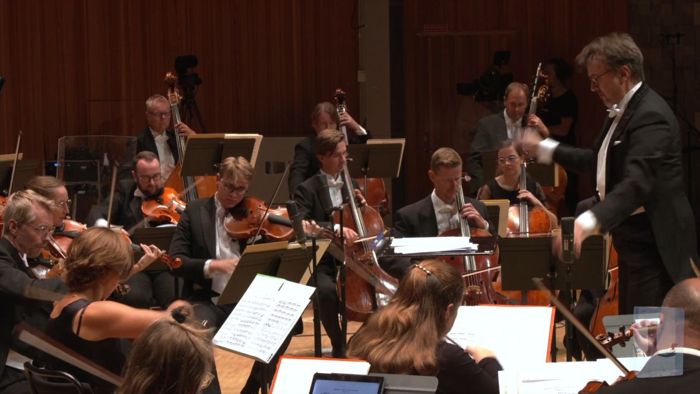Church Music
The church music area at the School of Music in Piteå is a community of teachers and students dedicated to promoting excellence in organ performance, choral conducting, and other fields related to the practice of church music. As a church music student at the School of Music in Piteå, you will receive high-quality individual instruction and work with a collection of world-class organs. Students typically live within walking distance to the School of Music/Acusticum campus - the creative hub of northern Sweden.
The Church Music and Organ area at the School of Music in Piteå is characterized by a supportive environment where students receive a great deal of individual instruction. Organ lessons and studio class occur weekly. In studio class, students play their organ repertoire pieces for each other as well as conduct choral anthems and sing hymns together. We also work on special concert projects that vary every semester.
The church musician degree program at Musikhögskolan i Piteå will give you a broad base of skills to succeed as a parish musician and help organ & church music to remain an important part of the Swedish cultural landscape.
A broad education
The bachelor's degree in church music is an introduction to the highly varied responsibilities of a parish musician. At the conclusion of your education you will be able to accompany yourself in a solo song during worship services, conduct a choir in Handel's Messiah or an Abba song, improvise an interlude during a hymn, arrange a choral piece for 3-part choir and guitar, or to teach an organ student her first prelude and fugue by Bach.
You can also select additional courses in areas of specific interest: singing, choral conducting, piano, music theory, improvisation and much more.
How to apply for church musician
Fantastic instruments
.jpg)
Studio Acusticum (Woehl, 2012, IV / 140): Sweden's largest concert hall organ. Includes bells, xylophone, and celesta. Almost all of the organ repertoire is playable here, but the organ sounds particularly good in music written from the 19th century to the present.
.jpg)
Norrfjärden Church (Grönlunds, 1997, III / 36): A replica of a 17th-century Baroque organ originally found in the German Church in Stockholm. The original organ remains and was restored in two locations north of Piteå in Tornedalen. The Great and Pedal divisons are located in Övertorneå and the Rückpositiv is in Hietaniemi. The organ's meantone temperament is suitablee for repertoire from all over Europe written before Johann Sebastian Bach's time. The organ is often used in teaching and concerts.
.jpg)
.jpg)
Orgelsalen (Grönlunds, 1989, III / 35): The three-manual Grönlund organ of the organ hall is eclectic in style and available for student concerts and teaching.
The Liturgical organ hall is the School of Music's little gem. A smaller concert hall with a two-manual baroque organ built by Robert Gustavsson, Härnösand (II, 15) and voiced by Mads Kjersgaard, one of Sweden's leading experts in baroque organ. The hall also houses a two-manual harpsichord.
Practice organs There are five additional practice organs at the School of Music. This means that there are always instruments available when you want to practice.
.jpg)
Apply for our classical specialisations at the Academy of Music

Your teachers:
Organ: Aaron Sunstein External link., Gary Verkade (prof emeritus)
External link., Gary Verkade (prof emeritus)
Service playing and Improvisation: Lars Sjöstedt
Choral conducting: Erik Westberg External link.
External link.
Orchestral Conducting: Petter Sundkvist External link.
External link.
Voice: Katherine Osborne External link.
External link.
Piano: Niklas Sivelöv, Nigar Charkazova
Pop and jazz piano: Robert Svensson, Viktor Fagerlund
Theory: Aaron Sunstein External link., Jörgen Häll
External link., Jörgen Häll
Student thesis: Åsa Unander-Scharin External link., Stefan Östersjö
External link., Stefan Östersjö
Contact
Aaron Sunstein
- Senior Lecturer
- 0911-72783
- aaron.sunstein@ltu.se
- Aaron Sunstein
Updated:
